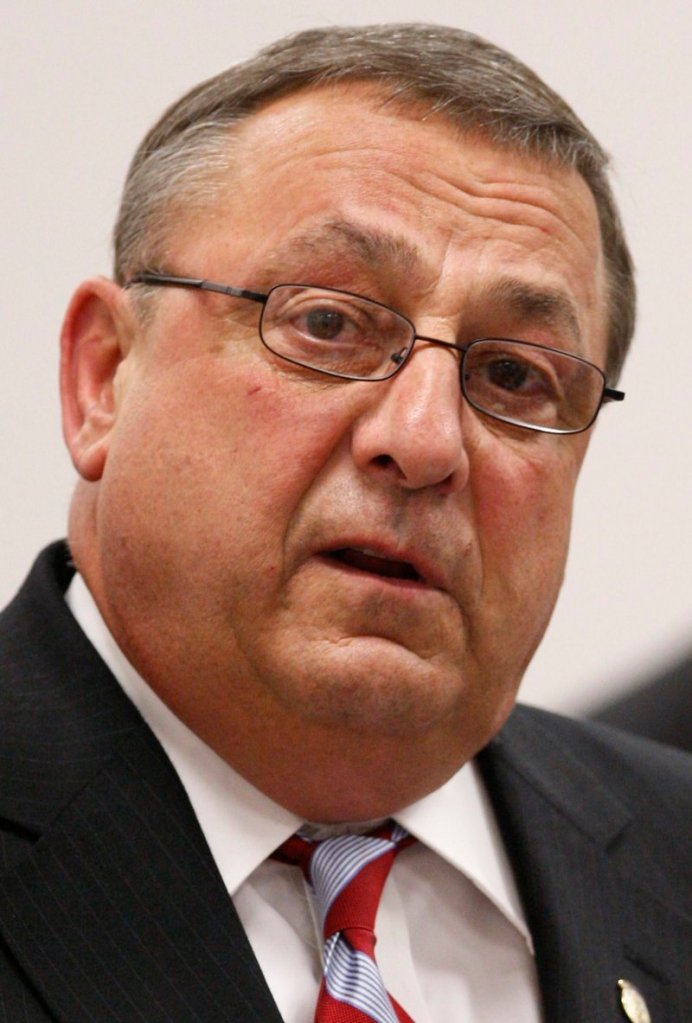SKOWHEGAN — Sweeping education changes proposed today by the governor and education commissioner drew a swift and negative response from the Maine Education Association.
Gov. Paul LePage and Education Commissioner Stephen Bowen announced proposals that would allow public funding of private and parochial schools, change how teachers and principals are evaluated, allow students greater choice in the schools they attend, and expand career and technical education.
The proposals would affect every student, teacher and administrator in Maine. LePage made the announcement in an automotive garage at the Somerset Career & Technical Center, where a Chevrolet pickup truck was raised on a lift.
LePage, who spoke briefly, said the proposals were designed to provide “the broadest scope of opportunities” for students, according to the Morning Sentinel.
“When I say it’s about the student, I’m talking about making sure each student gets the education he or she wants,” LePage said.
The four proposals haven’t been published in bill form yet, but they are closely tied to the objectives of the Maine Department of Education’s strategic plan, which was released last month.
One proposal would remove “statutory language that prohibits public tuition dollars from going to private religious schools,” according to the department’s website.
Another would establish an open-enrollment program, by which private and parochial schools could receive public funding if they accepted students from public school districts.
The proposals would provide students and families more power to choose the school setting that works best for each student, according to the department’s website.
Reaction to the governor’s proposals was swift from teachers at the event and officials at the Maine Education Association, who said the legislation would put public schools in a stranglehold and Maine students at a disadvantage.
The proposal could force rural schools to close, as students hopped from one school district to another and the money followed, according to an MEA news release issued after the governor spoke.
“This proposal pits one school district against the other with serious consequences,” said MEA President Chris Galgay. “If schools begin losing students to nearby schools, they will likely face closure.”
Under the governor’s school choice proposal, “schools of choice” would have no obligation to provide transportation. Students who have two working parents, have limited means or live in a single-parent home would be at a disadvantage for attending other schools outside of their immediate community.
“The governor’s school choice plan is bad for local schools, bad for local communities and bad for Maine’s students and is an attack on the teachers who are tasked with educating them,” Galgay said.
Jeremy Lehan, an English teacher at Skowhegan Area High School, attended the governor’s news conference.
“The net effect of initiatives such as charter schools and school choice, in which taxpayer dollars follow the child, will hamstring the efforts of local school districts across the state,” Lehan said. “In order to provide the same quality and level of services, local school boards will be forced to raise taxes. A more likely scenario is that people and programs will be cut if/when children leave districts to attend other schools.”
Mary Turbyne, a retired teacher from the Skowhegan area and a local education advocate, also attended the news conference.
“This Governor is running roughshod,” Turbyne said. “The problem with his new education proposals is that they are not thought through. In order for any proposal to work, it must be thought through, and his are not. And, of course, any attempt at change in education has got to have teachers on board, or it will fail.”
The final proposal would eliminate job security for teachers, according to the MEA. While the statewide teachers’ association has consistently argued for more rigorous evaluations, the governor’s proposal would allow superintendents and principals to reward favorite teachers and fire others, the MEA said.
Send questions/comments to the editors.


